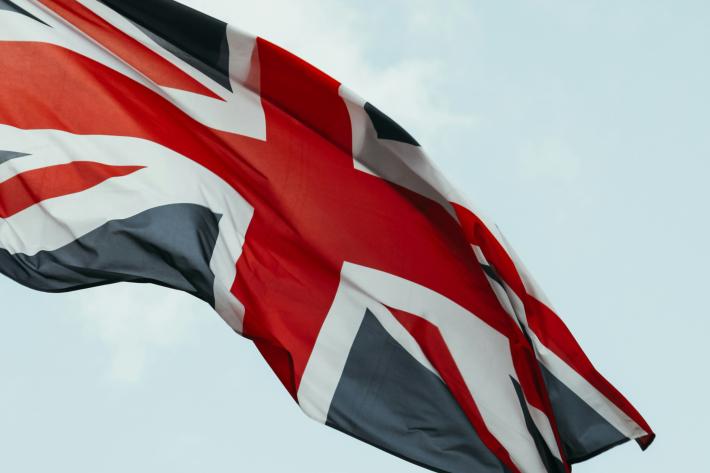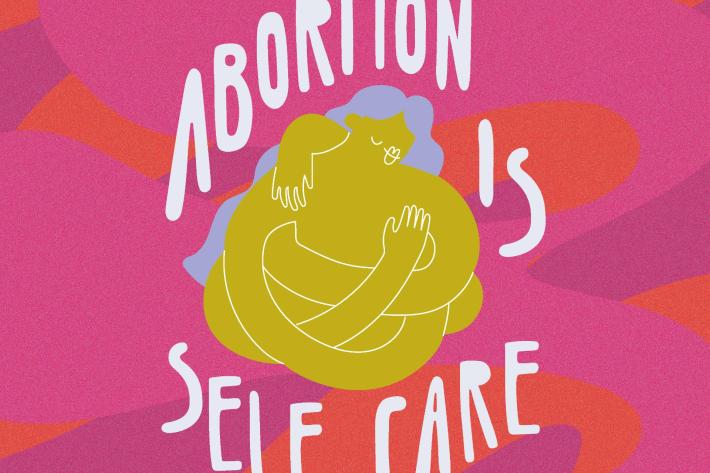
Spotlight
A selection of news from across the Federation

Türkiye
Türkiye’s deepening hostility toward LGBTIQ+ communities
All people deserve to live with dignity and humanity, and it is only right that everyone has the freedom to be who they are and to love whom they love. And yet, this is not the case in Türkiye.
Filter our news by:


| 04 June 2025
Türkiye’s deepening hostility toward LGBTIQ+ communities
All people deserve to live with dignity and humanity, and it is only right that everyone has the freedom to be who they are and to love whom they love. And yet, this is not the case in Türkiye — among other places. We are deeply outraged by the Turkish government’s systemic campaign against the LGBTIQ+ community, which has escalated through harsher jail sentences, the silencing of civil society organizations, and the imposition of punishments for nonconformity with binary gender norms. These attacks on the LGBTIQ+ community are a stark indicator of the shrinking civic space and ongoing democratic backsliding in Türkiye. This deteriorating situation is reflected in the latest ILGA Rainbow Map, where Türkiye’s LGBTIQ+ rights record ranks among the most concerning in the region. In a recent alarming move, the Ministry of Family and Social Services sent a directive to all state institutions banning the use of gender and LGBTIQ+ concepts in national education and policymaking. The directive, which simultaneously declares 2025 the “Year of the Family” while excluding and vilifying LGBTIQ+ people, exposes a deeply exclusionary agenda. The Ministry’s decision to erase essential terms such as “gender,” “gender identity,” “LGBT,” “SOGIESC” and “comprehensive sexuality education” from public discourse constitutes a direct attack on the dignity, safety, and humanity of LGBTIQ+ people. The entire directive and the narrative it is pushing are not only dangerous, but profoundly dehumanizing. Additionally, one of the harshest anti-LGBTIQ+ laws in Europe is currently advancing through the Turkish Parliament. The bill severely restricts LGBTIQ+ expression and visibility, jeopardizes the right of trans people to marry, and permits arbitrary detention based on ambiguous allegations. These ideologically driven attacks are not without consequence. Activists are reporting a rise in suicide among LGBTIQ+ people in Türkiye, driven by the increasingly hostile political environment. No one deserves to face harm, abuse, or discrimination simply for being who they are. We stand in unwavering solidarity with the LGBTIQ+ community in Türkiye and ask allies to spread the word about the situation and call for the safety and protection of LGBTIQ+ people. Read more: A "warning" from the Ministry of Family to its directorates against LGBTI+: “Do not use the concepts of gender, gender identity, or sexual orientation” ILGA Rainbow Map and Türkiye’s profile Press release: Turkey poised to further roll back LGBTI rights amid ongoing democratic crackdown Credits illustration: Paul Martín del Campo (Otto Pastias)

| 12 March 2025
European Commission's new Women's Rights Roadmap includes SRHR—Now we need action
On 7 March 2025, the European Commission released its new Roadmap for Women’s Rights - a political declaration that reaffirms its determination to uphold gender equality and sets out a long-term vision for how it will advance women’s rights. IPPF EN welcomes this crucial commitment at a time when ultraconservative movements are gaining influence in the EU and around the world, threatening progress on women's rights, including their sexual and reproductive health and rights (SRHR). We particularly value the inclusion in the Roadmap of the following key commitments, which are at the heart of our demands to the EU: 1. Highest Standards of Health The Roadmap reiterates that every woman has the right to the highest attainable standards of physical and mental health, with notably a focus on SRHR. It commits to supporting and complementing health action by Member States in this field, in full respect of the Treaties. IPPF EN strongly supports this inclusion of SRHR in the Roadmap, by which the European Commission highlights that SRHR are women’s rights and part of EU values. But it is important to note that SRHR are not only a health issue – they are also fundamental rights intertwined with the clear EU priorities of achieving gender equality and fighting against sexual and gender-based violence. We urge the EU to take bold, actionable steps in the upcoming Gender Equality Strategy to implement international commitments, international human rights and public health standards on SRHR, and ensure that Member States guarantee access to comprehensive SRHR services for all in the EU, including safe and legal abortion. Other objectives in the Roadmap include ensuring respectful and high quality obstetric, gynaecological, antenatal, childbirth and postnatal care, free from discrimination and harmful practices; promoting gender-sensitive medical research, clinical trials, diagnostics and treatments; and ensuring access to affordable menstrual hygiene products and contraception. IPPF EN welcomes the prioritisation of obstetric care, of which access to abortion care is an integral part; and calls for the recognition and combating of all forms of obstetric and gynaecological violence, including mistreatment during and denial of abortion care. 2. Freedom from Gender-Based Violence The Roadmap outlines actions to combat all forms of violence against women and girls, including sexual violence and rape, based on lack of consent, and to ensure support and protection for victims of violence. IPPF EN urges Member States to provide access to sexual and reproductive healthcare services to victims of sexual violence, which should be free of charge, sufficiently resourced and accessible at all times and throughout the country, in line with the EU Directive on Violence Against Women. 3. Comprehensive Sexuality Education We strongly welcome the inclusion of comprehensive sexuality education promotion in the Roadmap. Comprehensive sexuality education, which includes consent education, is essential for enabling young people to form happy, healthy, and safe relationships free from violence and discrimination. 4. Institutional Mechanisms and Funding The Roadmap stresses the need for strong institutional mechanisms and sustainable funding for gender equality policies and women’s rights organisations. IPPF EN calls for the priorities outlined in the Roadmap, and the forthcoming Gender Equality Strategy, to be adequately funded, particularly in light of the upcoming negotiations on the EU Multiannual Financial Framework. A strong women’s rights movement is the most effective way to counter threats of retrogression. The EU should increase its protection and political and financial support to organisations and human rights defenders who fight for women’s rights, including SRHR. 5. Intersectionality The Roadmap recognizes the importance of addressing intersectional discrimination, but we regret the omission of ‘gender identity’, ‘sexual characteristics’, and ‘migration status’ as discrimination grounds. We call on the EU to address the specific needs of trans, non-binary, intersex, and migrant and undocumented women, who face unique challenges. “It is a welcome first step that SRHR and other crucial topics have been included in the Roadmap for Women’s Rights. The Roadmap should now pave the way for the new EU Gender Equality Strategy post-2025 and be followed up with impactful actions. We stand ready to work with the European Commission and Member States to transform these principles into reality,” said Micah Grzywnowicz, IPPF EN Regional Director. Image credit: Fátima Bravo for Fine Acts

| 20 January 2025
Prioritising Safety: IPPF is Leaving X
As an organisation dedicated to promoting and protecting the health, rights, and dignity of all individuals, IPPF must prioritise the safety and well-being of our community in every space we occupy. After careful consideration, we have decided to leave the platform X, effective 20 January 2025. Unfortunately, X no longer provides the safe and supportive environment that our community deserves. The increasing prevalence of harmful discourse and the platform's failure to adequately address it have made this decision necessary. We are also deeply concerned about Meta’s new policy updates announced in the beginning of January, which raise critical questions about privacy, misinformation, and the safety of vulnerable groups online, including women, migrants, transgender people and the LGBTQIA+ community. As advocates for sexual and reproductive health and rights, we must ensure the digital spaces we engage with uphold the values of equity, inclusion, and accountability. The growing public outcry over censorship and restricted exposure to critical topics, such as Palestine-related content, on platforms like Meta and X, highlights the urgent need for transparency, equity, and fairness in digital spaces. These principles remain central to our advocacy. Our commitment to creating meaningful conversations and driving positive change remains steadfast. You can continue to connect with IPPF European Network on LinkedIn, via our new Bluesky account, or the IPPF EN website, where we will remain active and responsive. We thank you for your continued support and invite you to join us in advocating for safer and more equitable digital spaces for all. Together, we can build a world where everyone can thrive—online and offline. #DigitalSafety

| 18 December 2024
Joint Statement on the Decision to Ban Puberty Blockers for Trans Youth in the UK
The recent decision to indefinitely ban the private prescription of puberty blockers for trans youth in the UK marks a profoundly troubling development in the ongoing struggle for the rights of trans people and access to necessary, life-saving and evidence-based healthcare. In the UK, where no form of trans-specific healthcare is currently available for minors through the NHS and waiting lists have reached 6 years, this decision constitutes a de facto ban on puberty blockers. This decision, which overrides years of established medical guidance and expertise, is deeply political, rooted in a divisive public discourse and misinformation rather than the recommendations of leading medical authorities. It threatens the well-being of vulnerable trans youth, whose lives depend on timely, supportive, and individualised healthcare. ILGA-Europe, IPPF European Network, TGEU, IGLYO, and The Kite Trust call on the UK government to reconsider this harmful decision and to engage meaningfully with both the medical and scientific community and civil society groups representing the interests of trans youth and trans adults. The framing and justification for this ban have leaned heavily on a polarised and often misleading public narrative about trans identities and related trans healthcare and epistemologically and methodologically questionable studies about trans identities and trans-specific healthcare. Despite claims of prioritising child safety, this decision disregards the consensus of medical professionals and organisations such as the World Professional Association for Transgender Health (WPATH) and the Endocrine Society’s Clinical Practice Guideline, which have long endorsed puberty blockers as a safe and reversible option for managing gender dysphoria in minors. These treatments allow young people experiencing distress with their assigned gender to pause puberty, giving them time to better understand their needs and identity, without the added pressure of physical changes brought on by puberty.[1] The political instrumentalisation of healthcare for trans minors has become a rallying point for anti-trans rhetoric, which often conflates all trans-specific healthcare with irreversible medical interventions. This characterisation is not only inaccurate but also deeply harmful. Puberty blockers do not lead to permanent medical transition [2] – they are a widely used and reversible treatment prescribed for various conditions, including precocious puberty.[3] By banning them for trans youth specifically, the UK government is singling out a vulnerable group for discriminatory and harmful treatment based on ideology rather than evidence. Misinformation about the nature and effects of puberty blockers has played a significant role in shaping public opinion and policy. Opponents of trans-specific healthcare frequently cite exaggerated or unfounded claims about the risks of these treatments, ignoring the robust body of research demonstrating their safety and efficacy. Long-term studies show that puberty blockers and other trans-specific healthcare significantly reduce rates of depression and suicidality among trans youth [4] — outcomes that align with broader understandings of the critical importance of affirming care for marginalised populations. Expert voices, including paediatric endocrinologists, psychologists, and trans health specialists, have been sidelined in favour of rhetoric that frames trans-specific healthcare as controversial. This erasure of medical expertise undermines the principles of patient-centred care and puts the health of trans youth at risk. The decision to ban puberty blockers ignores the individualised, case-by-case assessments that qualified professionals conduct before prescribing such treatments,[5] opting instead for an unyielding prohibition that strips both doctors and families of agency. The consequences of this ban will be devastating. For many trans youth, the ability to access puberty blockers represents a lifeline. Denying them this care will force young people to undergo the changes of puberty associated with their assigned gender, exacerbating gender dysphoria and increasing risks of mental health struggles, including anxiety, depression, and suicidal tendencies. By removing a critical tool for early intervention, this decision condemns trans youth to unnecessary suffering and places an already marginalised group at greater risk of harm. Furthermore, this policy undermines the trust between trans individuals and the healthcare system. Families seeking support for their children will face increased barriers, uncertainty, and stigma, while healthcare providers may find themselves unable to offer the care they know to be best for their patients. These ripple effects extend beyond trans youth, chilling the broader provision of trans-specific healthcare and reinforcing a climate of fear and hostility. Trans children and young people deserve safety, understanding, and access to the same standard of care afforded to their peers. Decisions about their healthcare should be guided by medical evidence and the expertise of trained professionals, not by political agendas. The indefinite ban on puberty blockers represents a failure to prioritise the rights and well-being of trans youth, and it sets a dangerous precedent for further erosion of the rights of LGBTI persons in the UK. We urge policymakers to reconsider this harmful decision and to engage meaningfully with both the medical and scientific community and civil society groups representing the interests of trans youth and trans adults. Upholding the dignity and humanity of trans youth requires a commitment to evidence-based healthcare, free from the distortions of ideology and misinformation. Only by centering the voices and needs of trans youth can we hope to build a society that values and protects all its members. Signatories ILGA Europe IPPF European Network TGEU IGLYO The Kite Trust *** 1. Cal Horton, Experiences of puberty and puberty blockers: Insights from trans children, trans adolescents, and their parents, Vol. 39(1), Journal of Adolescent Research, available at: https://journals.sagepub.com/doi/full/10.1177/07435584221100591v. 2. Hannema et al, Endocrine management of transgender and gender diverse adolescents: expert opinion of the ESPE Working Group on Gender Incongruence and the Endo-ERN main thematic group on Sexual Development and Maturation, available at: https://pubmed.ncbi.nlm.nih.gov/39622214/. 3. Giordano & Holm, Is puberty delaying treatment ‘experimental treatment’?, Vol 21(2) International Journal of Transgender Health (2020). 4. Van der Miesen et al, Psychological Functioning in Transgender Adolescents Before and After Gender-Affirmative Care Compared with Cisgender General Population Peers, Vol 66(6) Journal of Adolescent Health (2020); Olson et al, Mental Health of Transgender Children Who Are Supported in Their Identities, Vol 137(3) Pediatrics (2016); Nath, R., Matthews, D.D., DeChants, J.P., Hobaica, S., Clark, C.M., Taylor, A.B., Muñoz, G. (2024). 2024 U.S. National Survey on the Mental Health of LGBTQ+ Young People. West Hollywood, California: The Trevor Project. www.thetrevorproject.org/survey-2024. 5. Cass, Hilary (2024), Independent review of gender identity services for children and young people: Final report, pp. 168-169, available at: https://cass.independent-review.uk/home/publications/final-report/ *** Photo credit: Elina Emurlaev, UnSplash

| 10 December 2024
Our joint vision for gender equality in the EU - Joint civil society statement
Civil society organisations unite today to put forward our shared vision for the future of gender equality in the European Union (EU). We call on the EU to work over the next five years towards the practical realisation of a Union where everyone can live in safety, free from discrimination and violence, and where gender equality is not just an aspiration but a lived reality for all - regardless of their gender, ethnicity, race, gender identity and expression, sexual orientation, sex characteristics, disability, residence status, social class, age, among others. The last mandate saw notable initiatives to advance gender equality. However, despite these achievements, striking inequalities remain. As the new European Commission is taking office, we request the EU institutions and Member States to redouble their efforts and to ensure that advancing gender equality remains a key priority mainstreamed throughout EU laws and policies for the next 5 years, with the necessary resources allocated. In particular, we call on the EU to ensure the highest level of ambition is reflected in the upcoming Roadmap for Women’s Rights and the Gender Equality Strategy post-2025, particularly geared towards achieving the following objectives (download the joint statement below for our detailed asks): Realising the full range of women’s rights: Upholding sexual and reproductive health and rights (SRHR) Combating the backlash against gender equality Protecting Women Human Rights Defenders and their organisations Ending sexual and gender-based violence: Implementing the EU Directive combating violence against women and domestic violence (VAW) Going beyond the Directive on VAW Responding to intersectional discrimination and oppression Ensuring sufficient funding for these objectives Our call to action: We urge the EU institutions and Member States to join us in building a more just and equal society. Gender equality must remain a top priority in all EU policy processes over the next five years. Let us work together to ensure that women and girls in all their diversity in the EU can live free from violence, discrimination, and oppression. Signatories: AGE Platform Europe Amnesty International Center for Reproductive Rights EL*C - Eurocentralasian Lesbian* Community End FGM European Network European Sex Workers Rights Alliance IGLYO ILGA-Europe International Planned Parenthood Federation European Network (IPPF EN) La Strada International - European NGO Platform against Human Trafficking Platform for International Cooperation on Undocumented Migrants (PICUM) Protection International Organisation Intersex International Europe - OII Europe

| 05 December 2024
Norway Passes Landmark Abortion Law, Expanding Rights Amid Calls for Greater Access
On 3 December, Norway took a major step closer to reproductive freedom when its Parliament adopted by a large majority a groundbreaking new law extending self-determined abortion rights from 12 weeks to 18. "This is significant progress for sexual and reproductive health and rights (SRHR) in Norway, and reflects the growing global trend toward liberalizing abortion access. Over the past 30 years, more than 60 countries have expanded abortion rights, and this move demonstrates Norway’s commitment to reproductive autonomy and gender equality.” said Kjersti Augland, assistant general manager with Sex og Politikk, IPPF’s Member Association in Norway. “The fact that the new law in Norway uses inclusive, gender-neutral language needs to be highlighted and celebrated. It will ensure that all pregnant people—regardless of gender—can access abortion care, recognizing diverse identities and experiences,” said Micah Grzywnowicz, the Regional Director of IPPF European Network. The new law will assess the accessibility of abortion care within the primary health care system, since until now, abortions have only been accessible at regional hospitals. Sex og Politikk will follow implementation closely, holding the government accountable for ensuring equitable access, emphasizing that most abortions today are performed using medication, making it feasible for primary healthcare providers to provide this care. Advocates continue to call for abortion care to be accessible, compassionate, and tailored to people’s needs regardless of location. Regrettably, abortion review boards will still exist, creating unnecessary obstacles and delays for people needing care beyond 18 weeks, and forcing them to defend their right to access care. Sex og Politikk and its partners are committed to ensuring that future revisions of Norway’s abortion law address these concerns and further dismantle barriers to care. This moment represents not just a legislative milestone, but a call to continue advocating for full reproductive freedom in Norway. Photo by Maryan Ivasyk on Unsplash
















